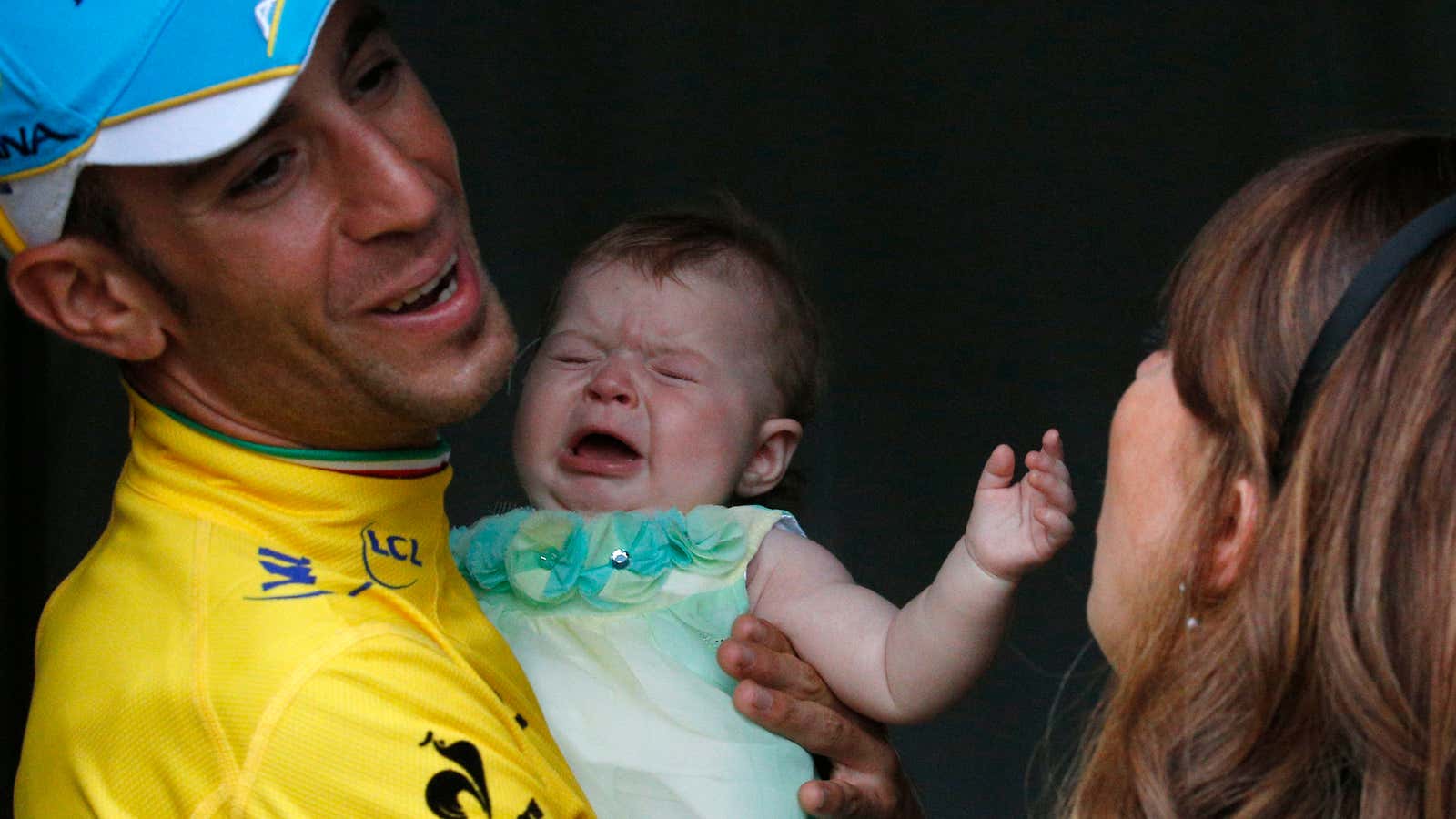In case you needed another reason to blame your parents for how you turned out, it turns out that anxiety isn’t just passed down genetically—it also has to do with how you are raised. Parents and kids affect each others’ anxious tendencies just by sharing a roof, and that means parents can also play a role in reducing their children’s anxieties and their own, according to a new study out of King’s College in London and published in the American Journal of Psychiatry.
The study looked at almost 900 families with adult twins, either fraternal or identical, who had children. If anxiety was only a genetic trait, then a child would have the same amount of anxiety as both her father, and her father’s identical twin, because she shares the same amount of both of their DNA. However, the researchers found that children of a twin had more in common with their parent than with their parent’s twin, co-author Thalia Eley tells Quartz.
“The similarity you see within families appears to be largely driven by the fact that they all live together,” Eley says.
There are a few ways this anxiety could be transmitted from parent to child, or vice versa, the study explains. Children might observe their parents’ fear or worries in their actions or overhearing their words, and then adopt those same worries. Another cause could be what the study calls “negative parenting behaviors”—unnecessarily shielding a child from something that a parent fears. Or on the flip side, parents might perpetuate the problem by allowing a child’s existing anxieties, like fear of heights or pain at the dentist, to dictate their parenting choices and allow their child to avoid those experiences, Eley says. A child’s anxiety could even be causing the parent’s anxiety.
“The right thing to do is to help the child have opportunities to take on challenges and tasks appropriate to their age and level of fear,” Eley says, “So they have the opportunity to learn that they can actually cope with this situation after all.”
Past research has shown that children of anxious parents are more likely to be anxious, and that therapy designed to help anxious parents recognize and alter certain behaviors can minimize the effect of that anxiety on their kids.
Eley says this research could have a positive effect on parents in that they’ll know they can help. She advises parents to be aware of their own anxieties so that they can avoid transferring them to kids. For example, if going to the dentist makes you anxious, send your child with your partner so that she doesn’t pick up on those emotions.
